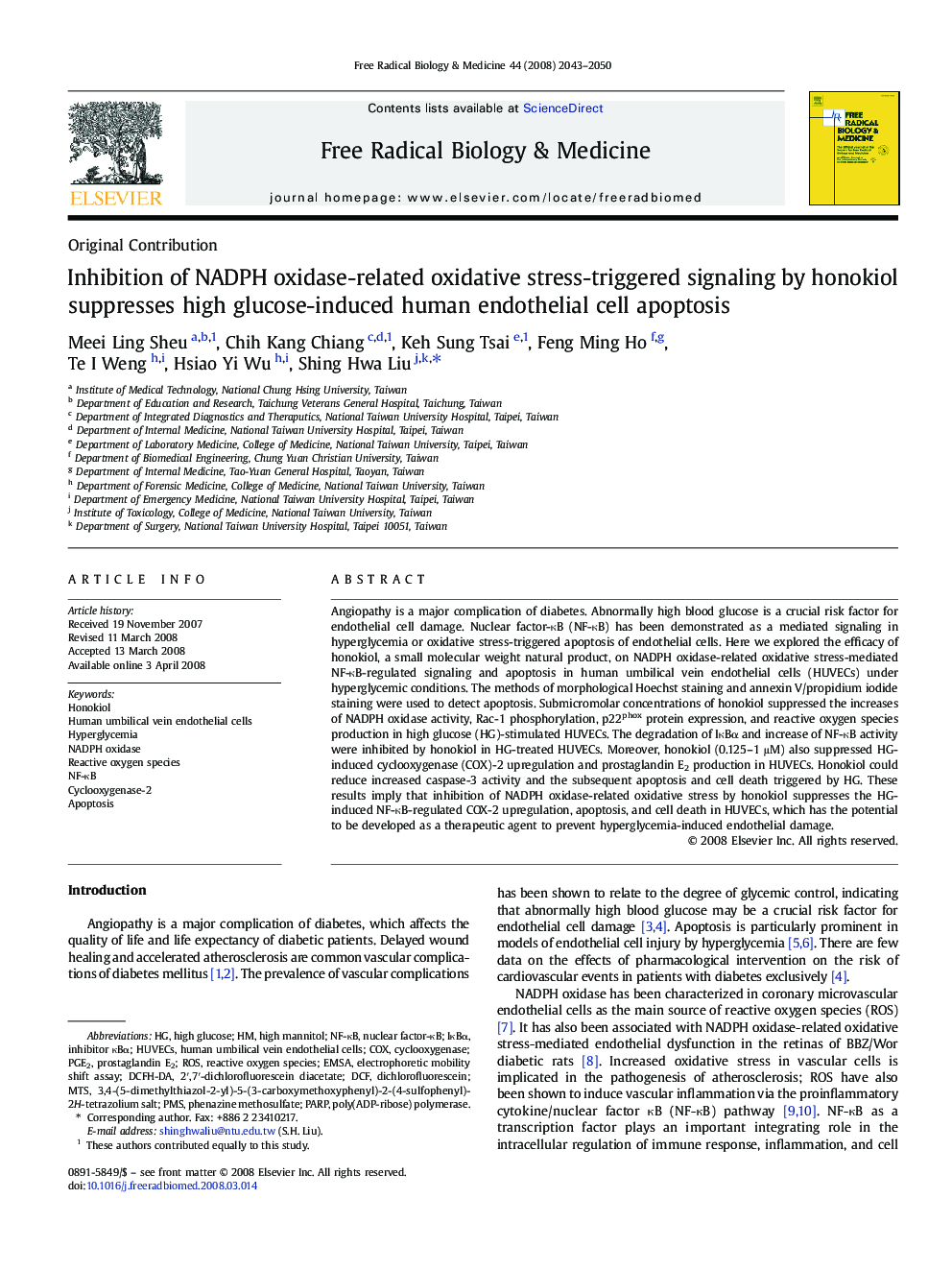| Article ID | Journal | Published Year | Pages | File Type |
|---|---|---|---|---|
| 1910970 | Free Radical Biology and Medicine | 2008 | 8 Pages |
Angiopathy is a major complication of diabetes. Abnormally high blood glucose is a crucial risk factor for endothelial cell damage. Nuclear factor-κB (NF-κB) has been demonstrated as a mediated signaling in hyperglycemia or oxidative stress-triggered apoptosis of endothelial cells. Here we explored the efficacy of honokiol, a small molecular weight natural product, on NADPH oxidase-related oxidative stress-mediated NF-κB-regulated signaling and apoptosis in human umbilical vein endothelial cells (HUVECs) under hyperglycemic conditions. The methods of morphological Hoechst staining and annexin V/propidium iodide staining were used to detect apoptosis. Submicromolar concentrations of honokiol suppressed the increases of NADPH oxidase activity, Rac-1 phosphorylation, p22phox protein expression, and reactive oxygen species production in high glucose (HG)-stimulated HUVECs. The degradation of IκBα and increase of NF-κB activity were inhibited by honokiol in HG-treated HUVECs. Moreover, honokiol (0.125–1 μM) also suppressed HG-induced cyclooxygenase (COX)-2 upregulation and prostaglandin E2 production in HUVECs. Honokiol could reduce increased caspase-3 activity and the subsequent apoptosis and cell death triggered by HG. These results imply that inhibition of NADPH oxidase-related oxidative stress by honokiol suppresses the HG-induced NF-κB-regulated COX-2 upregulation, apoptosis, and cell death in HUVECs, which has the potential to be developed as a therapeutic agent to prevent hyperglycemia-induced endothelial damage.
